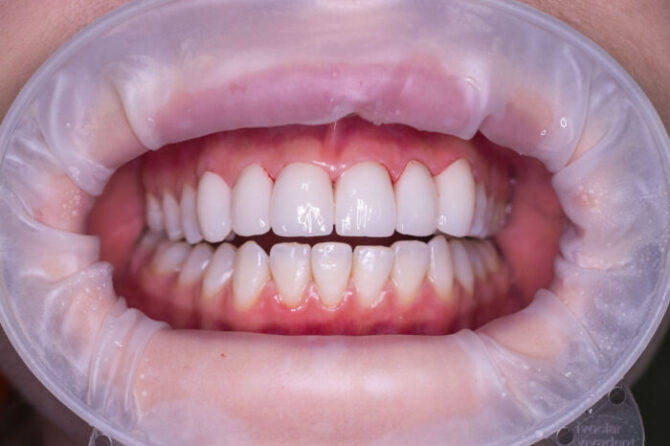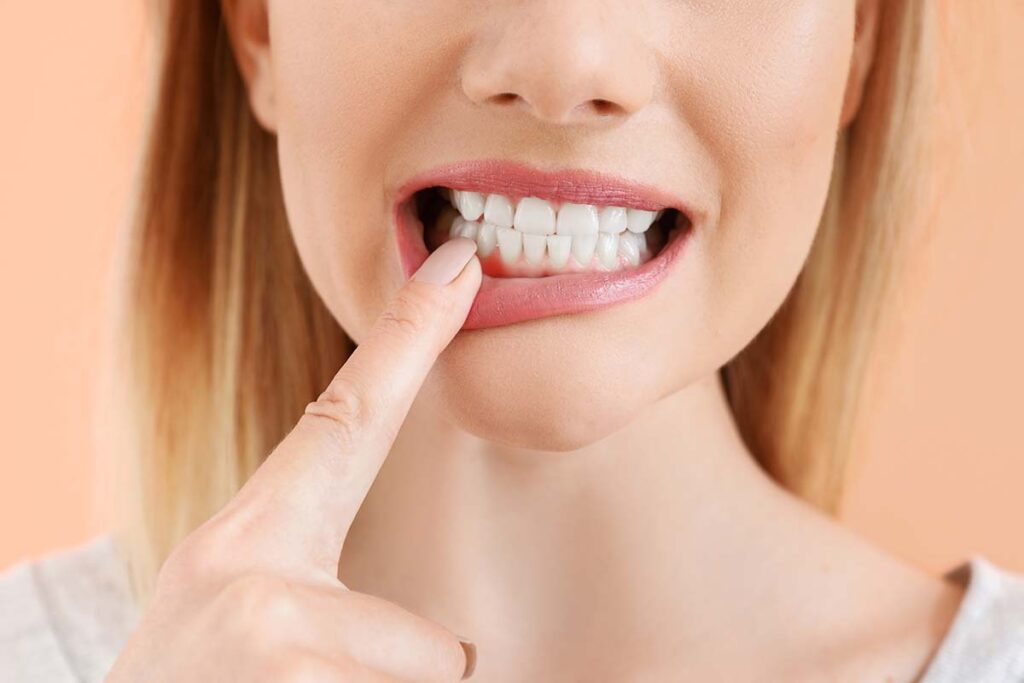
Your Smiley Piercing May Be Causing Gum Recession
If you’ve ever gotten a smiley piercing, you may have been warned of the dangers of gum recession. Your ‘Smiley Piercing May Be Causing Gum Recession’ can cause trauma to the gum tissue. If you are experiencing any of the symptoms of gum recession, such as swollen or red gums, sensitivity to hot or cold foods, or a receding gum line, it is important to see your dentist. Early diagnosis and treatment of gum recession can help preserve your teeth and oral health.
In this post, we’ll explore the links between smiley piercings and gum recession, and we’ll give you some tips for preventing gum recession from happening in the first place. Read on to learn more!
Tips if you have a smiley piercing
So, you’ve decided to take the plunge and get a smiley piercing. Congratulations! Smileys are beautiful and unique piercings that can make your smile pop. Here are a few tips to help you through the healing process:
1. Keep it clean: Be sure to thoroughly clean your piercing twice daily with mild soap and warm water. This will help prevent infection and speed up the healing process.
2. Don’t touch it: It can be tempting to fiddle with your new piercing, but resist the urge! Touching it can irritate and delay healing.
3. Be gentle: When brushing your teeth or eating, be careful not to put too much pressure on your piercing. Eating soft foods or using a straw for the first few weeks will help minimize contact.
4. Be patient: Smileys can take up to 6 months to heal fully, so don’t get discouraged if it takes a while. Your patience will be rewarded with a beautiful and long-lasting piercing!
What risks are associated with this piercing?
A smiley piercing requires special care and should be performed by a qualified professional. Since this piercing is located in the mouth, it is already home to hundreds of different species of bacteria. Fortunately, these bacteria are mostly harmless, and the immune system will usually keep them under control. However, if your smiley piercing becomes infected, the bacteria can enter the bloodstream and spread throughout the body. This may put you at risk for heart problems.
A smiley piercing typically lasts between two and six weeks, depending on the type of frenulum that has been pierced. However, if proper aftercare is followed, this piercing can last up to a year. Proper care includes avoiding certain kinds of hot foods and smoking, and not sharing food with others. Although a smiley piercing is considered low risk, it should not be undertaken unless you are completely sure it is right for you.

A smiley piercing may not be suitable for people who have dental veneers. It may cause a small amount of damage to your teeth. However, if you practice good oral hygiene, you should not have problems keeping your smiley clean. The plaque that forms will negatively impact your teeth and gums.
Gum damage due to oral piercings
Gum recession is a common problem caused by oral piercings. These piercings cause gum tissue to wear away, making the teeth more susceptible to plaque and cavities. Additionally, this condition can result in sensitivity of the teeth, which can make eating or drinking challenges. In some cases, gum recession can lead to gum surgery.
- One way to avoid gum recession caused by your smiley piercing is to keep the area clean and dry.
- Avoid eating acidic foods like oranges while the piercing is healing. Acidic foods can sting your piercing site.
- If you think your smiley piercing is causing your gums to recede, consult a dentist immediately.
- You may have an infection and may need antibiotics to fight it. Taking antibiotics is a good idea if you suspect gum disease. An infection can quickly become disfiguring if left untreated.
How Can Smiley Piercings Contribute to Gum Recession?
While gum recession can occur for various reasons, having a smiley piercing increases your risk of developing this condition. This is because the jewelry used for this type of piercing can rub against your gums and cause them to become irritated or inflamed. This irritation can quickly lead to gum recession if you already have sensitive gums.
What Can You Do to Prevent or Mitigate Gum Recession?
If you have a smiley piercing or are thinking about getting one, there are some things that you can do to reduce your risk of developing gum recession.
- First, ensure that you take good care of your teeth and gums by brushing twice daily and flossing once daily.
- It’s also important to see your dentist regularly for professional cleanings and checkups so any problems can be caught and treated early on.
- Additionally, consider using an alcohol-free mouthwash to keep your gums healthy.
Enamel damage due to piercing
Most people know that piercings can harm your health if not done properly. What many don’t realize, however, is that piercings can also damage your teeth. When you get a piercing, the process of puncturing through the skin and tissue can also damage your enamel. This is because the needle used to pierce through the skin can also scrape against your teeth, causing small abrasions.
If you already have weak or thin enamel, this can cause even more damage and make your teeth more susceptible to cavities. While some enamel damage is unavoidable when you get a piercing, there are things you can do to minimize the risk. For example, avoiding hard foods and drinks immediately after getting a piercing can help further reduce the chances of damaging your teeth. If you experience enamel damage, treatments are available to help repair the damage and restore your smile. So if you’re considering a piercing, keep your oral health in mind.
Monitor Your Piercing
You should monitor your gum health care if you have recently undergone a smiley piercing. Although this body piercing is relatively safe, proper oral hygiene is essential for preventing gum recession. The ring’s large beads and constant friction can cause damage to your gums and teeth.
Taking great care of your piercing is essential to prevent infection and minimize pain. If you experience bleeding gums or pain, you may have an infection. In this case, you should visit a dentist to get treatment. A salt solution is a great treatment to promote healing. The solution should be made from sea salt and warm water. Ensure you use sea salt and not iodized table salt.
The healing process of a smiley piercing is relatively quick, but it is important to monitor your gum health. The mouth has a high bacteria count, so proper care is crucial. Healing can take one to three months, depending on the bacteria present.
How do you prevent gum recession from piercings?
If you’re getting a smiley piercing, the best way to prevent gum recession is to take care of the piercing by following some simple aftercare tips.
- The first thing you need to do is keep the piercing area clean and dry. If you don’t, bacteria can easily invade the piercing and lead to an infection. To prevent this, practice good oral hygiene and use medicated mouthwash.
- Moreover, you should get regular dental checkups. A regular dental checkup can help reduce the number of bacteria in your mouth. When bad bacteria multiply in your mouth, they can cause gum disease and gingivitis. This can lead to tooth loss of bone and tissue. Moreover, if your piercing has a large surface area, it increases the risk of infection.
- As your gum line is more sensitive than the crown, you should avoid chewing with your piercing. This can lead to gum recession and expose the sensitive roots of your teeth. This can be painful. Also, it may wear away the enamel on your teeth, increasing your chances of developing cavities.
Smiley piercings may be trendy now, but they’re not worth the risk of developing gum recession. If you already have a smiley piercing, be extra diligent about taking care of your teeth and gums so you can avoid any serious problems down the road. Remember—your health should always come first!
If you’re unhappy with your smile because of gum recession caused by a smiley piercing, use Nature’s Smile! This product can restore your gums to their natural state and give you back your confident smile with its all-natural ingredients.
>>>Visit Nature’s Smile today to learn more about how it can help you get your smile back.
Leave a reply